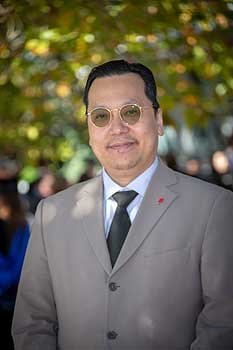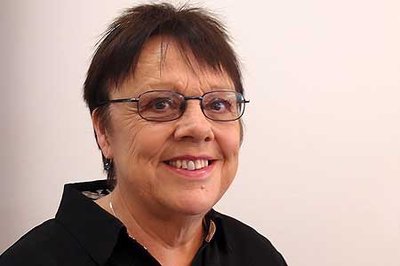
Massey University researchers will undertake vital work developing tangible solutions in the construction industry and improving the lives of youth with complex needs thanks to a five-year investment from the Ministry of Business, Innovation and Employment’s (MBIE) 2020 Endeavour Fund.
Professor Monty Sutrisna, Head of School of Built Environment has been awarded more than $8.6 million for his programme “Creating Capacity and Capability for the New Zealand Construction Sector”.
Professor Monty Sutrisna has recently moved to New Zealand to join Massey as the inaugural head of the new School of Built Environment.
“This is excellent news for our school and the university and has proven that investing in building a new School of Built Environment was the right decision,” Professor Sutrisna says.
Professor Sutrisna’s five-year research programme aims to bring about a fundamental change in the construction sector by creating a new level of visibility for stakeholders, enabling investor confidence in delivery, stability of construction companies and resource planning and confidence to people seeking training and education to work in the sector.
“The New Zealand construction sector suffers from poor productivity, high staff turnover, low skills and is constrained by a lack of innovation. Regular failures of companies lead to job losses, wasted resources and low public confidence in the sector.
“Our research will enhance the sector's ability to deliver, by creating a smart system to model the inter-relationships of government and development needs against the construction sector's ability to deliver.
“By identifying the gaps in capacity and capability, we’re confident we will be able to significantly improve outcomes in the construction sector so that future projects can be delivered efficiently, effectively, sustainably and safely."

Professor Monty Sutrisna
Youth the focus of second successful project
Massey University’s Professor Jackie Sanders from the School of Social Work, working alongside Professor Robyn Munford and researcher Justina Webster, has also received investment funding of $6.87 million for the programme “Relational resources for change – New futures for youth with complex needs.”
Professor Sanders’ and Professor Munford’s programme intends to help practitioners working with vulnerable youth by creating culturally and contextually responsive resources that support them to increase the impact they have on the lives of these youths.
This new project will build on their previous work “Long-term successful youth transitions”, a highly regarded 10-year research programme that concluded in late 2019. Their previous programme, which was also MBIE funded, received a gold rating from MBIE as recognition of its achievement and impact for New Zealand.
“Rangatahi are disproportionately represented among youth reporting distress, complex needs and cumulative disadvantage. These youth are valuable members of our communities with great potential; they deserve effective interventions,” Professor Sanders says.
“Our project intends to create a Community of Practice (CoP) composed of local and international researchers, practitioners and youth, who use state-of-the-art methods to design and test a comprehensive relational practice resource kete.”
“Our hope is to integrate the kete into new and existing services so that culturally and contextually-anchored practice resources can support providers in developing and sustaining effective interventions.”
When complete, the kete will includes training packs, implementation resources and measurement tools reflecting international and local best practice evidence. A sector-led Guardianship/Kaitiaki Framework will also ensure the ongoing availability of the resources beyond research-end.

Professor Robyn Munford
Rangitāhua marine reserve the focus of third successful programme
Associate Professor in Marine Ecology David Aguirre and Senior Lecturer in Marine Ecology Libby Liggins will lead “He waka kotahi Understanding both human and environmental impacts”,one of four research activities that is part of a wider project, Te mana o Rangitāhua: A holistic approach to transform ecosystem wellbeing. The project is being led by Ngāti Kuri and the Auckland Museum Trust Board.
While Rangitāhua is scientifically identified as one of the most intact marine ecosystems on Earth, the region remains poorly understood as a consequence of a severe lack of strategic science investment, according to the application. The mauri of Rangitāhua is not comprehensively understood and the researchers are focused on building critical knowledge to guide evidence-based environmental management and protect Rangitāhua ecosystems in the face of future challenges.
Dr Aguirre and Dr Liggins’ research will examine the drivers of ecosystem change at Rangitāhua, including local and global stressors, such as climate change. Their aim is to identify tohu (indicators) of change, that help to provide a predictive tool for sustaining Rangitāhua’s environmental wellbeing. A key part of developing the ecosystem model will include mauri modeling of key indicators, using te ao Ngāti kuri, to understand the wellbeing and connectivity among species.
Dr Aguirre says the reserve’s position, isolation, and pristine state makes it immensely unique and valuable in understanding how the vitality of marine ecosystems can be sustained in the face of modern challenges.
Dr Liggins adds, “We have been lucky to be at the forefront of generating new knowledge in understanding this rare ecosystem, and feel privileged to be working alongside Ngāti kuri on their journey to reconnect with, and ensure the mauri, of this special place.”
Ministry of Business, Innovation and Employment’s (MBIE) 2020 Endeavour Fund received 128 proposals with only 17 granted funding.
Massey University’s Provost Professor Giselle Byrnes, is immensely proud of Massey staff's success in the latest 2020 Endeavour Fund round and notes the huge competition for funding this year.
“This is fabulous for the research teams involved and the projects speak strongly to Massey’s strategic ambitions to focus on solving contemporary societal challenges, in addition to maintaining our commitment to fundamental knowledge discovery, and our goal to deliver quality research, conducted in partnership with industries and the communities we serve”.
MBIE’s Manager of Contestable Investments Dr Max Kennedy says this year the ministry received a high number of compelling research projects and is investing into a range of programmes that will have ongoing positive impacts for all New Zealanders. “This year’s investments show our growing strength in applying leading-edge technology to realise and find solutions to the long-term challenges we face in our changing world.”
Further information about the successful Massey programmes and others nationwide can be found here.